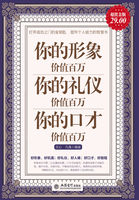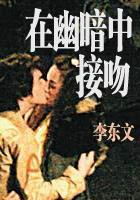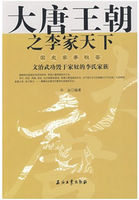I was elected to the assembly, the popular branch of the New York Legislature, in 1861. I was nominated during an absence from the State, without being a candidate or knowing of it until my return. Of course, I could expect nothing from my father, and my own earnings were not large, so I had to rely upon a personal canvass of a district which had been largely spoiled by rich candidates running against each other and spending large amounts of money. I made a hot canvass, speaking every day, and with an investment of less than one hundred dollars for travel and other expenses I was triumphantly elected.
By far the most interesting member of the legislature was the speaker, Henry J. Raymond. He was one of the most remarkable men I ever met. During the session I became intimate with him, and the better I knew him the more I became impressed with his genius, the variety of his attainments, the perfection of his equipment, and his ready command of all his powers and resources.
Raymond was then editor of the New York Times and contributed a leading article every day. He was the best debater we had and the most convincing. I have seen him often, when some other member was in the chair of the committee of the whole, and we were discussing a critical question, take his seat on the floor and commence writing an editorial. As the debate progressed, he would rise and participate. When he had made his point, which he always did with directness and lucidity, he would resume writing his editorial. The debate would usually end with Mr. Raymond carrying his point and also finishing his editorial, an example which seems to refute the statement of metaphysicians that two parts of the mind cannot work at the same time.
Two years afterwards, when I was secretary of state, I passed much of my time at Saratoga, because it was so near Albany. Mr. Raymond was also there writing the "Life of Abraham Lincoln." I breakfasted with him frequently and found that he had written for an hour or more before breakfast. He said to me in explanation that if one would take an hour before breakfast every morning and concentrate his mind upon his subject, he would soon fill a library.
Mr. Raymond had been as a young man a reporter in the United States Senate. He told me that, while at that time there was no system of shorthand or stenography, he had devised a crude one for himself, by which he could take down accurately any address of a deliberate speaker.
Daniel Webster, the most famous orator our country has ever produced, was very deliberate in his utterances. He soon discovered Raymond's ability, and for several years he always had Raymond with him, and once said to him: "Except for you, the world would have very few of my speeches. Your reports have preserved them."Mr. Raymond told me this story of Mr. Webster's remarkable memory.
Once he said to Mr. Webster: "You never use notes and apparently have made no preparation, yet you are the only speaker I report whose speeches are perfect in structure, language, and rhetoric.
How is this possible?" Webster replied: "It is my memory. I can prepare a speech, revise and correct it in my memory, and then deliver the corrected speech exactly as finished." I have known most of the great orators of the world, but none had any approach to a faculty like this, though several could repeat after second reading the speech which they had prepared.
In 1862 I was candiate for re-election to the assembly. Political conditions had so changed that they were almost reversed. The enthusiasm of the war which had carried the Republicans into power the year before had been succeeded by general unrest. Our armies had been defeated, and industrial and commercial depression was general.
The leader of the Democratic Party in the State was Dean Richmond.
He was one of those original men of great brain-power, force, and character, knowlege of men, and executive ability, of which that period had a number. From the humblest beginning he had worked his way in politics to the leadership of his party, to the presidency of the greatest corporation in the State, the New York Central Railroad Company, and in his many and successful adventures had accumulated a fortune. His foresight was almost a gift of prophecy, and his judgment was rarely wrong. He believed that the disasters in the field and the bad times at home could be charged up to the Lincoln administration and lead to a Democratic victory. He also believed that there was only one man in the party whose leadership would surely win, and that man was Horatio Seymour.
But Seymour had higher ambitions than the governorship of New York and was very reluctant to run. Nevertheless, he could not resist Richmond's insistence that he must sacrifice himself, if necessary, to save the party.
The Republicans nominated General James W. Wadsworth for governor.
Wadsworth had enlisted at the beginning of the war and made a most brilliant record, both as a fighting soldier and administrator.
The Republican party was sharply divided between radicals who insisted on immediate emancipation of the slaves, and conservatives who thought the time had not yet arrived for such a revolution.
The radicals were led by Horace Greeley, and the conservatives by Thurlow Weed and Henry J. Raymond.
Horatio Seymour made a brilliant canvass. He had no equal in the State in either party in charm of personality and attractive oratory. He united his party and brought to its ranks all the elements of unrest and dissatisfaction with conditions, military and financial. While General Wadsworth was an ideal candidate, he failed to get the cordial and united support of his party.
He represented its progressive tendencies as expressed and believed by President Lincoln, and was hostile to reaction.
Under these conditions Governor Seymour carried the State.
The election had reversed the overwhelming Republican majority in the legislature of the year before by making the assembly a tie.















